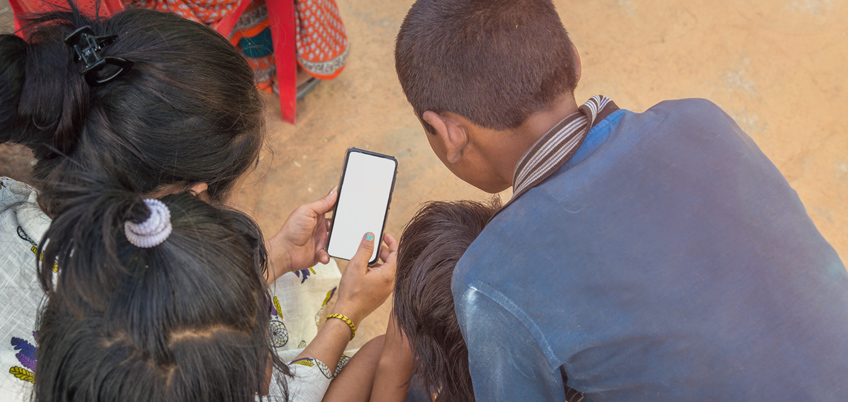
Eixo Educação da Redes de Desenvolvimento da Maré. Foto © Douglas Lopes
The Northeast is the region in the country where the impact of parents’ years of schooling on children’s progress is greatest
Among all the factors that can increase a person’s chances of growing in life, Education plays the most relevant role. Several studies show that the more you progress in your school career, the higher your income as a worker. But what emerges from the data made available on the new platform of the Institute for Mobility and Social Development (IMDS) is the effects of a person’s level of schooling on the development of their children. And, mainly, how much each added year of a person’s studies can convert into higher development in the academic life of their children.
The data, compiled from the bases of the Brazilian Institute of Statistical Geography (IBGE), obtained after crossings and interpretations with a specific focus on social mobility, show that 25.9% of the children of parents who have had no schooling, that is, who have less than a year of studies, can at least complete High School. And a portion of them finish college and go further.
Notable is the transformative effect that a few years of study can have on the lives of children. Those parents who manage to go a little bit further to the level of incomplete Elementary School or Junior High School (therefore, who attended school for less than three years throughout their lives) produce a remarkable achievement, making it possible for 54.7% of their children to complete High School or go beyond. It is more than double the above-mentioned 25.9%.
Even more surprising is to note that one or two more years of study by a father triples the percentage of his offspring who graduate from college or go further in their studies. While 4.7% of the children of unschooled parents reach higher education or more, 15% arrive there having had parents with incomplete Elementary or Junior High School.
Data from the IMDS platform allows for several crossings, including division by regions. In the national average, the difference between the children (of parents with no schooling and those of parents with incomplete primary or lower secondary education) who complete high school or go beyond is 28.8 percentage points. In this regard, the Northeast emerges as the region of the country where these few years of schooling are more productive, with 32.4 percentage points, ahead of the Southeast, the second best, with 27.9 percentage points.
Examining all the reasons that make a person in fact have better chances in life is the mission of IMDS, the first institution essentially dedicated to the topic of social mobility in Brazil. Inequality is commonly identified as the main Brazilian social problem. But there is also great injustice in the difference in opportunities between the richest and the poorest when it comes to simply having a chance to get ahead in life. This is what we discuss when the issue is social mobility.
In the ranking that measures the performance of countries in providing their young people with social mobility, Brazil is well below average. The parameter was established in a study by the Organization for Economic Cooperation and Development (OECD). It shows how long it takes a person to reach the average income of the population, having been born among the poorest 10%.
Brazilians will take nine generations to reach the country’s middle income, while the OECD average time is 4.5 generations. In Denmark, the leading country in the ranking of social mobility, the same path towards average national income takes two generations. In other words, this poor person will see his grandson prosper in life and surely see his son having chances that he himself did not have. Brazil is tied, in this regard, with South Africa and slightly ahead of Colombia, where the time required is 11 generations.
The average, among all countries included in the ranking by the OECD, is 4.5 generations. “Lack of social mobility perpetuates inequality. In other words, it amplifies injustices and takes away from the country, from our young people, the ability to dream of a better life,” reflects Paulo Tafner, CEO of the Institute for Mobility and Social Development (IMDS).
Many other fields of activity are revealed to those who study the topic in depth. Depending on the situation, the recommended intervention may involve health of pregnant women, entrepreneurial training for young people, prenatal care, support for cognitive development in early childhood, development of socio-emotional skills, prevention of violence, and even encouragement of a change in address.
Governments, businessmen and third sector institutions are focusing their efforts on education and have been doing a good job. But Brazil remains the place where only 4.7% of children of unschooled parents reach higher education, while 69.7% of children of those with higher education reach that same level. Verifying results of programs, proposing public policies based on evidence derived from the best social science available is the first task that IMDS imposes upon itself. The other is to take their conclusions to governments, in whatever sphere, so that successful programs can be replicated.